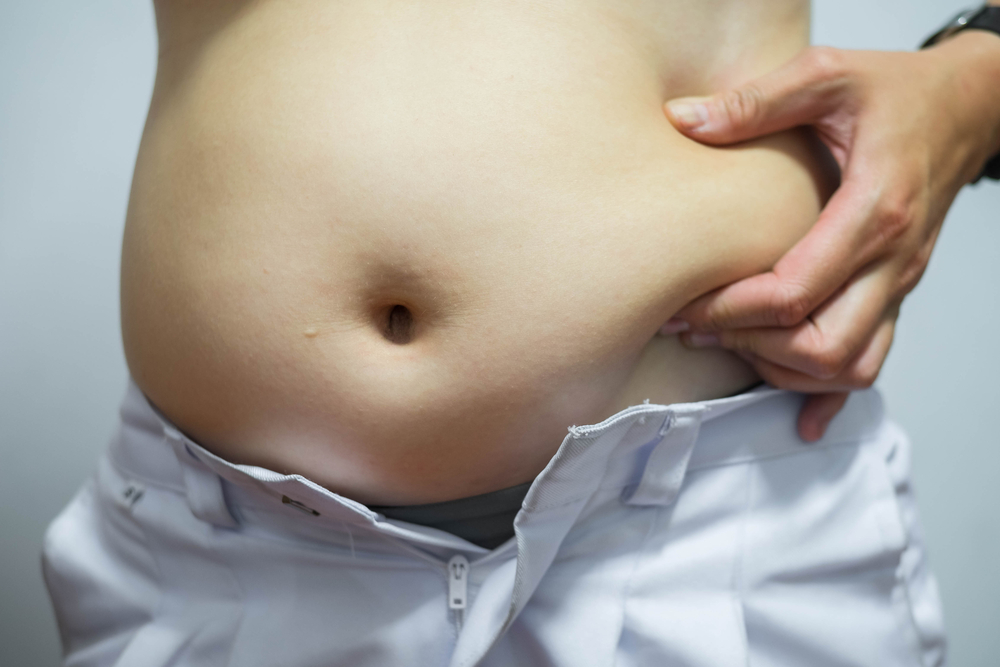
Do you feel bloated on a regular basis, or at times worse just before and during the 'time of the month'? Do you get so bloated that you even 'look pregnant'?
You could have endometriosis.
This month is endometriosis awareness month and while more women are becoming aware of this condition and getting a proper diagnosis, there are still many that are getting misdiagnosed and as a consequence are living in pain and missing out on proper treatment.
What do irritable bowel syndrome (IBS), small intestinal bacterial overgrowth (SIBO), food intolerances and even fibromyalgia have in common?
They can all be misdiagnoses for endometriosis.
All conditions can present with bloating and in many cases, it would be fair to assume that a gastrointestinal issue is the cause. However, this is not always the case.
There have been instances in my practice as a naturopath, where clients have come to see me for gastrointestinal issues and in one particular case fibromyalgia, only to find out that the true cause for their symptoms was undiagnosed endometriosis.
Endometriosis is a gynaecological condition in which parts of the endometrial (uterine) lining grow outside of the uterus [1]. The most common site for endometrial growth is the ovaries. Other organs affected include the fallopian tubes, pelvic ligaments, bowel and bladder [1]. Endometrial tissue has also been found in more distant locations including the lungs, diaphragm, kidney, spleen, gallbladder, stomach and breast [2].
The endometrial tissue is hormone-sensitive, which means that it swells and bleeds with each menstrual cycle. This causes pain, heavy periods with clotting, and scar tissue [1]. Many women will also suffer from depression, and in some cases from pre-mensrual dysphoric disorder (PMDD) [3]. Untreated, endometriosis can lead to infertility with an estimated thirty-five percent of infertile women suffering from undiagnosed endometriosis [2].
The causes for endometriosis are somewhat elusive however, it is known that it is an oetrogen-related condition with an immune system component. In fact, endometriosis has been classified by some as an autoimmune disease [4] with the characteristic inflammatory markers and tissue specific autoantibodies [5]. In addition, endometriosis is often co-morbid with other autoimmune diseases such as thyroid autoimmune disease and inflammatory bowel disease [1].
The gold standard diagnosis for endometriosis is laparoscopy by an experienced surgeon. Blood tests, scans and ultrasounds will not pick up endometriosis and as such are not reliable diagnostic tools [1].
Treatment includes surgery and a holistic approach to healing that includes diet and lifestyle counselling, and nutritional and herbal medicine as appropriate. The focus of treatment is to reduce inflammation, regulate hormones and address the immune system component.
If you, or anyone you know, suspects endometriosis is the cause of your symproms and you would like to investigate further, then consider a naturopathic consult with me. For consultation and booking details follow this link: http://mybodymindhealth.com.au/consultations
References
1. Briden, L, 2015, Period Repair Manual, Lara Briden ND, Sydney, Australia.
2.Trickey, R, 2011, Women, Hormones & the Menstrual Cycle, Trickey enterprises (Victoria) PTY LTD, Australia.
3.Cunningham, J., Yonkers, K.A., O'brien, S. and Eriksson, E., 2009. Update on research and treatment of premenstrual dysphoric disorder. Harvard review of psychiatry, 17(2), pp.120-137.
4.Eisenberg, Vered H., Mati Zolti, and David Soriano, 2012. Is there an association between autoimmunity and endometriosis?, Autoimmunity Reviews 11(11), pp. 806-814.
5.Podgaec, S., Abrao, M.S., Dias, J.A., Rizzo, L.V., De Oliveira, R.M. and Baracat, E.C., 2007. Endometriosis: an inflammatory disease with a Th2 immune response component. Human reproduction, 22(5), pp.1373-1379.